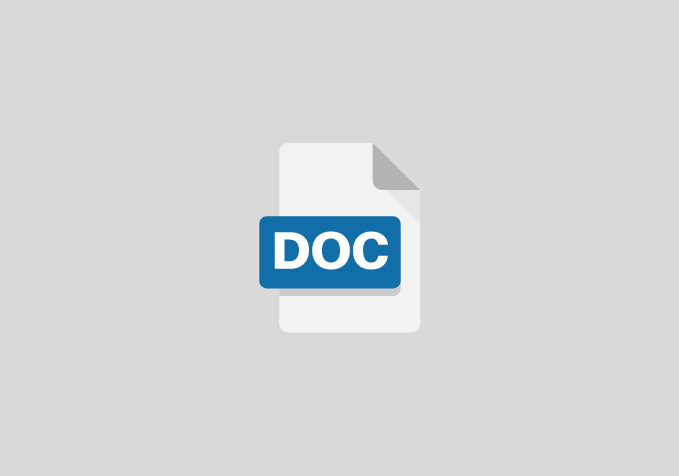An Analysis of Oil Revenue and Macroeconomic Performance in Nigeria
CHAPTER ONE
OBJECTIVES OF THE STUDY
The following are the objectives of this study:
- To examine the effect of oil revenue on macroeconomic performance in Nigeria.
- To examine the level of economic development in Nigeria.
- To examine the relationship between oil revenue and macroeconomic performance
CHAPTER TWO
LITERATURE REVIEW
INTRODUCTION
This chapter gives an insight into various studies conducted by outstanding researchers, as well as explained terminologies with regards to oil revenue and macro economic performance in Nigeria. The chapter also gives a resume of the history and present status of the problem delineated by a concise review of previous studies into closely related problems.
HISTORY OF THE NIGERIA ECONOMY
Nigeria’s economy is struggling to leverage the country’s vast wealth in fossil fuels in order to displace the crushing poverty that affects about 57 percent of its population. Economists refer to the coexistence of vast natural resources wealth and extreme personal poverty in developing countries like Nigeria as the “resource curse”.
Nigeria’s exports of oil and natural gas at a time of peak prices have enabled the country to post merchandise trade and current account surpluses in recent years.
Reportedly, 80 percent of Nigeria’s energy revenues flow to the government, 16 percent covers operational costs, and the remaining 4 percent go to investors. However, the World Bank has estimated that as a result of corruption 80 percent of energy revenues benefit only one percent of the population. During 2005 Nigeria achieved a milestone agreement with the Paris Club of lending nations to eliminate all of its bilateral external debt. Under the agreement, the lenders will forgive most of the debt, and Nigeria will pay off the remainder with a portion of its energy revenues. Outside of the energy sector, Nigeria’s economy is highly inefficient. Moreover, human capital is underdeveloped Nigeria ranked 151 out of 177 countries in the United Nations Development Index in 2004 and non-energy-related infrastructure is inadequate.
During 2003–2007 Nigeria has attempted to implement an economic reform program called the National Economic Empowerment Development Strategy (NEEDS).
CHAPTER THREE
RESEARCH METHODOLOGY
INTRODUCTION
This chapter describes the various methods and techniques used to collect and analyze the data gathered for the study to gain a deeper understanding of the topic under study.
The data collection stage is important since the result of the analysis is dependent on the quality of the data obtained. Therefore, the method selected for data collection must be the most appropriate to assist in achieving the objectives of the study:
In this case, it is to be used to determine the real status of employee involvement, causes of low employee involvement or participation in the decision-making process; determine the consequences of low employee involvement in decision-making on the implementation of management decisions.
CHAPTER FOUR
DATA PRESENTATION, ANALYSIS AND INTERPRETATION
This chapter is devoted to the presentation, analysis and interpretation of the data gathered in the course of this study. The data used for this study is secondary data from the central bank of Nigeria 2012 statistical bulletin. The data are been analyzed using regression.
CHAPTER FIVE
FINDINGS, CONCLUSION AND RECOMMENDATION
The objectives of the study was to
- To examine the effect of oil revenue on macroeconomic performance in Nigeria.
- To examine the level of economic development in Nigeria.
- To examine the relationship between oil revenue and macroeconomic performance
Findings from the study revealed the following
- That there is a positive significant relationship between oil revenue and macro-economic performance in Nigeria.
- More increase in oil revenue would improve the macro-economic performance in Nigeria.
REFERENCES
- Adelman, M.A. (1976), “The World Oil Cartel”, Quarterly Review of Economics and Business, 16 April, 3-11.
- Ajakaiye Olu, (2001) Economic Development in Nigeria: A Review of Recent Experience, Proceedings of the First Annual Monetary Policy Conference (Central Bank of Nigeria; 2001), pp. 12-36.
- Central Bank of Nigeria (2002). The Changing Structure of the Nigerian Economy and Implications for Development. (Abuja: CBN)
- Dickie, R.K., “Development of Crude Oil Production in Nigeria, and the Federal Government Control measures” (paper presented to the Institute of Petroleum, London, 1966).
- Iyoha, M.A and O.T. Ekanem (2002). Introduction to Econometrics. (Benin: Mareh Publishers).
- Jaidah, A.M. (1982), “Perspective on the Oil Market”, OPEC Review (autumn) 254-260.
- John H. Adler. (Oct., 1956), The Economic Development of Nigeria. The Journal of Political Economy, Vol. 64, No. 5, pp. 425-434.


